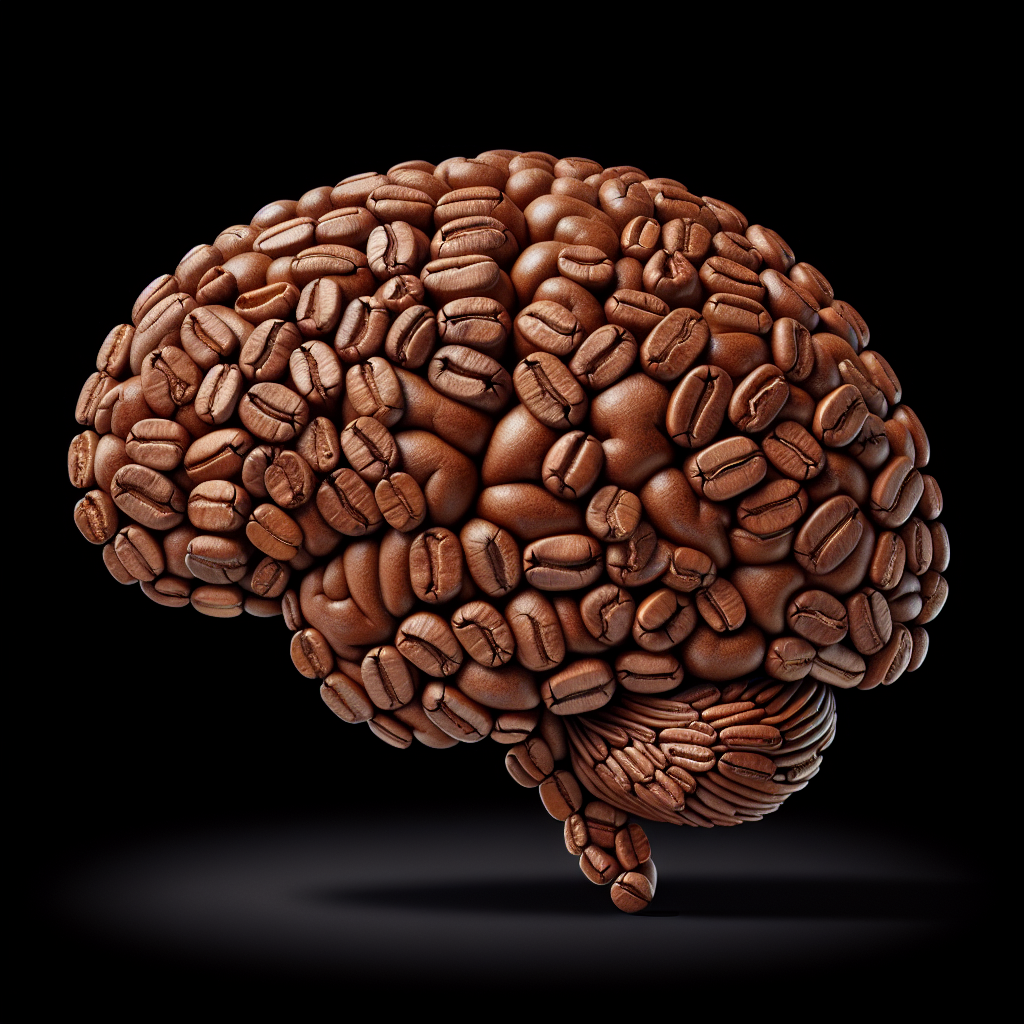The effects of caffeine on cognitive performance have been the subject of much scientific scrutiny. As one of the most widely consumed psychoactive substances in the world, caffeine is praised for its ability to enhance alertness, concentration, and even mood. However, the relationship between caffeine consumption and brain function is complex, and understanding it requires a look at a range of factors including dosage, individual tolerance, and the nature of cognitive tasks. In this comprehensive exploration, we will delve into the nuanced interactions between caffeine and cognitive performance, drawing on the latest research and expert insights.
The Mechanism of Caffeine Action
Caffeine exerts its effects primarily by antagonizing adenosine receptors in the brain. Adenosine is a neuromodulator that promotes sleep and relaxation by slowing down nerve activity. When caffeine blocks these receptors, it prevents adenosine from exerting its calming effects, thus increasing neuronal firing and releasing neurotransmitters like dopamine and norepinephrine that enhance alertness and attention.
Cognitive Benefits of Caffeine
Numerous studies have documented the cognitive benefits of caffeine. Moderate caffeine intake, typically equivalent to one to three cups of coffee, has been associated with improved reaction time, vigilance, attention, and problem-solving skills. These benefits are particularly evident in tasks that require sustained attention and are of repetitive nature.
For instance, researchers have found that caffeine can significantly improve performance on tasks like driving, where focus and reaction time are critical. Another study highlighted caffeine’s potential to enhance memory consolidation, suggesting that caffeine consumed after learning could improve memory retention.
The Role of Caffeine in Brain Health
While the short-term cognitive benefits of caffeine are well-recognized, its long-term impact on brain health is a topic of ongoing research. Some studies suggest that regular caffeine consumption may be linked to a reduced risk of neurodegenerative diseases like Alzheimer’s and Parkinson’s, possibly due to caffeine’s neuroprotective properties.
Variability in Response to Caffeine
The cognitive effects of caffeine are not uniform across all individuals. Factors such as genetics, age, and tolerance can influence how one responds to caffeine. For example, individuals with a certain genetic makeup may metabolize caffeine faster, and thus, the stimulatory effects may be more short-lived. Additionally, habitual caffeine users may experience diminished effects over time as tolerance develops.
The Downside of Caffeine Consumption
Despite its benefits, caffeine is not without its downsides. Overconsumption can lead to jitteriness, anxiety, heart palpitations, and may interfere with sleep quality. Caffeine’s ability to disrupt sleep can have a cascading effect on cognitive function, as sleep is crucial for memory consolidation and cognitive processing.
Moreover, caffeine withdrawal can lead to symptoms such as headaches, fatigue, and decreased cognitive performance, highlighting the importance of moderation and the potential for dependence.
Caffeine in Context: Synergy with Other Factors
Caffeine’s effects on cognition do not occur in isolation. They can be influenced by other dietary components, lifestyle factors, and health conditions. For example, the combined intake of caffeine with glucose has been found to have a synergistic effect on cognitive performance, as both substances can enhance different aspects of brain function.
Furthermore, the cognitive benefits of caffeine may be more pronounced when combined with physical exercise, which itself has been shown to improve mental clarity and focus. Exercise increases blood flow to the brain and promotes the release of neurotrophic factors that support neural health.
External Resources Supporting Caffeine’s Cognitive Benefits
The intricate effects of caffeine on cognition are supported by various high-quality external resources. For instance:
- A peer-reviewed study published in the journal Neuropsychopharmacology (link to study) provides evidence on caffeine’s ability to enhance certain types of memory.
- The Journal of Alzheimer’s Disease presents findings on caffeine’s potential protective effects against cognitive decline (link to article).
- Research from the Journal of Psychopharmacology (link to study) offers insights into the differential effects of caffeine based on genetic variations.
Caffeine and Dehydration: A Cognitive Concern?
A common question arises regarding caffeine’s diuretic properties and whether they can lead to dehydration, potentially impairing cognitive performance. It’s important to note that while caffeine has mild diuretic effects, moderate consumption does not typically lead to dehydration. Nonetheless, maintaining proper hydration is essential for cognitive function, as outlined in the article "Understanding the Cognitive Effects of Dehydration" found on Avix Health (link to article).
Recommended Caffeine Intake for Cognitive Performance
The recommended daily allowance for caffeine varies, but most sources agree that up to 400 milligrams per day is safe for most healthy adults. This is roughly the amount of caffeine in four cups of brewed coffee. However, individuals should pay attention to their own responses and adjust their intake accordingly.
Other Considerations for Optimal Cognitive Function
While caffeine can be a useful tool for enhancing cognitive performance, it is not a standalone solution. Other factors play a critical role in maintaining and improving cognitive abilities. These include a balanced diet rich in antioxidants, regular physical activity, sufficient sleep, and engaging in mentally stimulating activities like crossword puzzles.
Conclusion
Caffeine is a powerful cognitive enhancer that, when consumed in moderation, can improve various aspects of brain function. Its effects are influenced by individual differences and other lifestyle factors. While it is not a cure-all for cognitive challenges, it can be part of a holistic approach to maintaining and improving cognitive health. As with any dietary component, it is important to consider caffeine’s role within the broader context of a healthy lifestyle and diet for optimal cognitive performance.



